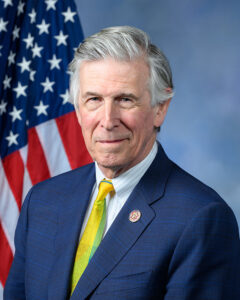A large delegation of teachers and school staff personnel jammed City Hall Tuesday night to urge the Falls Church School Board to raise its salary compensation level in its upcoming budget to match inflation.
In her recommended budget for the coming fiscal year, F.C. School Superintendent Dr. Lois Berlin included only a 2% cost-of-living adjustment (COLA) for teachers and staff in an effort to stick to a prior agreement with the F.C. City Council and hold the overall increase in the school system budget to 3%. The official rise in the cost-of-living (the CPI index) rose by 2.8% in the last year.
“We would like you to reconsider adding .8% to the employee salaries so that we do not have to live below inflation and can keep the same purchasing power that we currently have,” stated Joel Block, vice president of the Falls Church City Education Association, at Tuesday’s hearing.
Block’s remarks were echoed by others, including long-time school system employee Betty Pitera and fourth grade teacher Emily Florence. Over two dozen employees of the system were present, most of them sporting red-and-white buttons reading “Diet Cola” with a negative stripe across them. In other words, they want a real COLA, not a “diet” one.
Pitera said that offering a 2% COLA when the inflation rate is 2.8% is tantamount to a salary cut. Florence rattled off a long list of well known, veteran teachers whose salaries are stuck at the top of the pay scale that are planning to retire this year, or are near retirement. It suggested that better financial incentives might convince some of them to stay on.
Block said he is “personally disappointed” that his association’s agreement with the School Board “is being violated by this proposed budget.”
“For years, the FCCEA has worked with the school board to establish a standard of the Consumer Price Index as a guide for our cost of living increase,” he said. “Just as the school budget is negatively impacted by higher fuel and electrical costs, so are we. For the employees to get less than a full cost of living increase is to say that they should do the same job next year and have less purchasing power. In essence, we should do the same job for less.”
In comments to the News-Press following the public hearing, Block and long-time FCCEA president Cay Wiant said that the cost of adding the additional .8% increase to the 2% COLA increase proposed by Berlin would cost just over $200,000, less than a penny on the real estate tax rate.
In his remarks, Block said he was aware that Berlin’s proposed budget falls far short of the level of salary increases required to bring the system even with surrounding systems in the environment of heightened competition for good teachers.
“We understand,” he said, “that this will not be the year for the teachers’ salary structure to be fixed to make our starting salaries close to competitive with surrounding counties. There was a lot of work that went into trying to restructure our salary chart to adjust starting teachers’ salaries for teachers with a bachelor’s degree to bring us closer to the significantly higher salaries that surrounding counties offer. We know that work was for naught as this will not be happening.”
Dr. Berlin’s proposed budget was fashioned to conform to the pressures that will be on the City Council for final adoption of a new City-wide fiscal year budget by the end of April. It acknowledged that the growth of tax revenue, mostly from real estate, coming to the City coffers will be far lower than recent years.
Latest estimates from City Hall are that the revenue growth will be under 3%. But Berlin’s proposed budget sought to hit belt-tightening targets that would allow the City Council to avoid even a modest a tax rate increase, despite the slow growth.
The School Board will conduct more public hearings on the budget prior to its final adoption of its budget on Feb. 27. The size of that budget will not be constrained by any objective revenue factors other than the concerns by the City Council over a tax rate increase.













